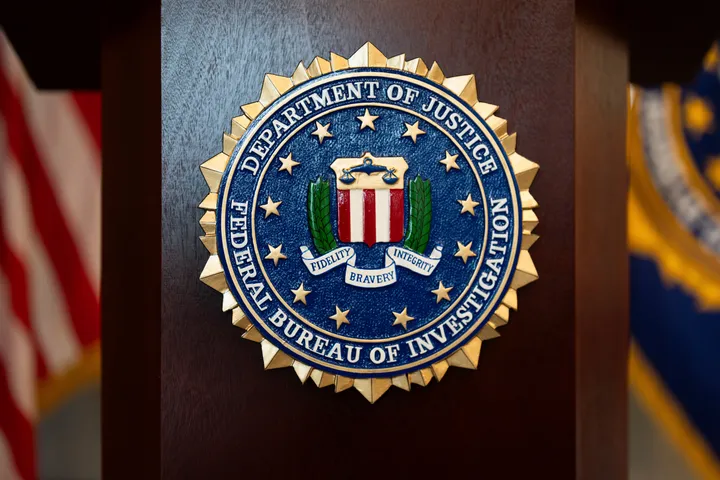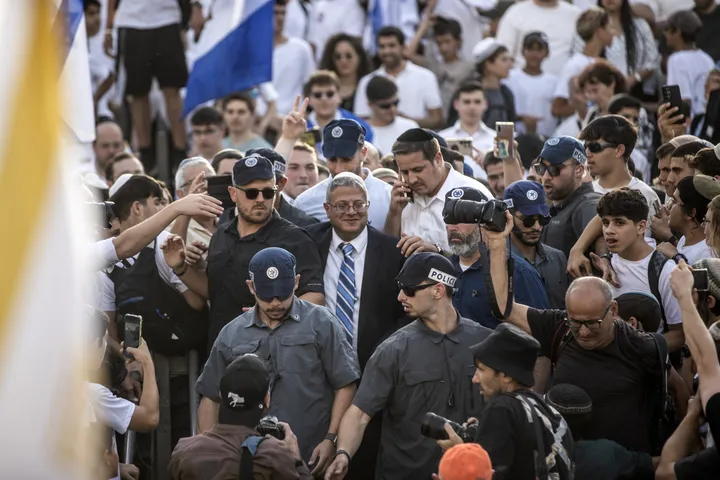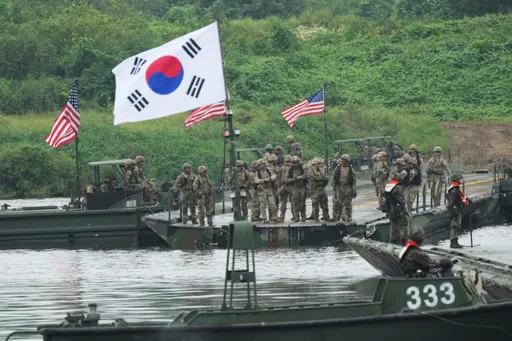Even before he took office in January 2017, Trump had vowed to dismantle the Iran nuclear deal, one he regularly called the "worst deal in history". The first indicator of his Middle East policy was his attempt to dispel Iran's influence—the biggest foe of Israel and Saudi Arabia.
Within months of his inauguration, Trump started to openly arm the group, YPG, that NATO ally Turkey views as a terrorist group and a direct threat to its national security.
He later travelled to Saudi Arabia to galvanise support against Iran's activities in the region, leading to a crisis between Qatar and the Gulf countries.
Trump had also announced that he would broker the "ultimate deal" between Palestine and Israel, putting an end to the decades-long conflict. Since then, he has backtracked on long-term US policy on the conflict in regards to a two-state solution, and declared Jerusalem as the capital of Israel in December, sparking days of rage in Palestine and across the globe.
Here's a look at how Trump's Middle East policy altered the balance in the region.
January 20, 2017
Trump inaugurated into office
During his inaugural address, Trump underlined the importance of national interest in state actions and interactions. He also explained that the US would “unite the civilised world against radical Islamic terrorism, which we will eradicate completely from the face of the Earth.”
After taking office, he appointed his son-in-law Jared Kushner—whose family donated tens of thousands of dollars to Israel's illegal settlements on Palestinian territory—as his adviser for Middle East affairs and for brokering a deal for the Israel-Palestine conflict.
January 27, 2017
Trump's "Muslim ban"
Trump signed an executive order that indefinitely halted the entry of travellers from Syria, and for 90 days, six other Muslim-majority nations: Iran, Iraq, Libya, Somalia, Sudan and Yemen.
The order was blocked by a federal court after it triggered protests and interrupted immigration and travel worldwide.
However, Trump signed a revised order in March, which temporarily freezes new visas for Syrians, Iranians, Libyans, Somalis, Yemenis and Sudanese citizens.
Iraq was removed from the list of targeted countries in the new order.
February 3, 2017
Continuing sanctions against Iran
President Trump—who had expressed his strong objection to the Iran nuclear deal during his campaign—continued to increase sanctions against Iran, despite its compliance with the nuclear deal. He said that the move was on the grounds that Iran was violating the “spirit” of the deal.
Iran says its nuclear program is only for peaceful purposes and that it will stick to the accord as long as the other signatories respect it, but will "shred" the deal if Washington pulls out.
March 25, 2017
Electronics ban goes into effect
The Trump administration imposed restrictions on carry-on electronic devices onto planes coming into the United States from 10 airports located in Muslim-majority countries, including Turkey, Jordan, Egypt, the UAE, Qatar and Saudi Arabia, in response to unspecified terrorist threats. But the ban was lifted in July for Turkey and the UAE.
April 6, 2017
Trump orders missile strikes in Syria
Breaking with years of US policy in Syria, Trump ordered a missile attack on the Syrian Shayrat Airbase, in retaliation for the Khan Sheikhoun chemical attack which the US said was carried out by the Syrian regime, calling it “unacceptable” and saying that it had gone “beyond a red line”, a reference to former President Barack Obama's statement in 2013. Obama had said that chemical weapons were a "red line" for the US, even though he didn't order action even when the regime actually used the chemical weapons.
Trump's move was met with mixed responses, with some calling it his first presidential action, and others fearing that it would drag the US into another war.
However, such an air strike was not repeated, and US policy in Syria remained limited to supporting the Syrian Democratic Forces (SDF) in the north and fighting Daesh, instead of taking steps towards removing the Assad regime.
May 9, 2017
US openly arms the YPG in Syria
Trump authorised the US defence department to equip "Kurdish elements" of the US-backed SDF, of which the YPG forms the backbone, in the battle against Daesh in Raqqa. This move drove a further wedge between the US and NATO ally Turkey, because the YPG is the Syrian affiliate of the PKK, which has been fighting the Turkish state for more than 30 years. Both Ankara and Washington recognise the PKK as a terrorist organisation.
Turkey says its biggest security concern is the YPG carving out an autonomous territory near its southeastern border. Ankara has accused the US of arming the group in the past.
The YPG had declared its desire for an autonomous region in Syria’s north, since the beginning of the Syrian conflict. As the war progressed, it positioned itself as a key player for the future of Syria by overtaking nearly one-quarter of Syria's territory with the technical, logistical and military support of the US and the diplomatic backing of Russia.
As the YPG spread across northern Syria, Ankara sought to prevent the group from connecting its so-called cantons in the east (Kobane) and west (Afrin) with Operation Euphrates Shield which began in August 2016.
New SDF army near Turkish border
Despite the defeat of Daesh in Syria, the SDF announced last week that it was rebuilding an army to control all the areas gained in the fight against Daesh, seeking autonomy, weeks after the head of US Central Command (CENTCOM) said that it would establish border protection forces in Syria, saying they would help prevent the resurgence of Daesh.
Recently, Turkey started preparing for another operation, this time focused on Syria's Afrin.
May 20, 2017
Start of Trump's first overseas trip
Trump's first overseas trip started with Saudi Arabia, where he was greeted with enthusiasm by the Saudi royal family,who saw his predecessor Barack Obama as too soft on its arch-foe Iran, and not strong enough with Washington's bilateral relationship with Riyadh.
During this trip, Trump spoke at the Arab Islamic American Summit, where he called on Arab leaders to do their fair share to "drive out" terrorism from their countries, putting the burden of combating militant groups on regional powers. Both Trump and Saudi King Salman bin Abdulaziz Al Saud described their mutual foe Iran as the source of terrorism, which they must confront together.
Saudi Arabia and the US also signed a $110 billion arms deal. The foreign ministers of both countries made it clear that the arms deal was aimed at countering Iran.
Muhammad bin Salman is named crown prince
Muhammad bin Salman, already known for his strong anti-Iran stance, was named crown prince in place of his cousin, Muhammed bin Nayef, a month after Trump’s visit on June 20.
Even as deputy crown prince, Mohammed bin Salman had been responsible for running Saudi Arabia's war in Yemen, dictating an energy policy with global implications and spearheading plans for the kingdom to build an economic future after oil.
Consolidation of power
Muhammad bin Salman continued to consolidate his power months later in November, when police detained dozens of Saudi royals, businessmen, and ministers in a crackdown led by the crown prince, who said he was conducting a “corruption” probe. But the move by the 32-year-old was widely seen as a move to consolidate his power.
June 5, 2017
Start of Gulf diplomatic crisis
Within weeks of Trump's visit to Riyadh, the United Arab Emirates (UAE), Egypt and several other countries severed their relations with Qatar, accusing the Gulf state of supporting terrorism over of its ties to the Muslim Brotherhood, Hamas and the Taliban. Another reason given was Qatar's ties with Iran, with whom Doha shares one of the world's largest off-shore gas fields.
The Muslim Brotherhood and Hamas are considered to be terrorist groups by Saudi Arabia, the UAE and Egypt.
Trump took credit for the Qatar diplomatic crisis in a series of tweets.
October 8, 2017
Visa crisis with Turkey
Relations between the two NATO allies, Turkey and the US, reached a new low as the countries suspended bilateral visa services “for security reasons”.
On October 4, Turkish police arrested a Turkish national, Metin Topuz, who was working at the US Consulate in Istanbul.
The prosecution indictment claims that 58-year old Topuz had contact with 121 high-ranked Fetullah Gulen Terrorist Organisation (FETO)-the group behind the July 15 coup attempt- members and helped the FETO suspects to flee Turkey, especially the ones who fled to the United States.
Four days later, the US issued a statement suspending visa services, and Turkey issued a similar statement hours later.
The US' refusal to extradite Gulen, who has been in the US under self-imposed exile since 1999, who masterminded the July 15 coup attempt, remains a major sticking point in the two countries' relations.
October 13, 2017
Trump’s office releases a new US strategy on Iran
The focus of Trump's Middle East policy, which attempted to curb Iran's influence, led the US to take steps in the region, such as creating stronger ties with Saudi Arabia. After nine months, Trump's remarks on Iran culminated in a new US strategy on Iran that centred on “neutralising ... Iran’s destabilising influence and constraining its aggression, particularly its support for terrorism and militants,” and “revitalising” alliances and regional partnerships against Iran.
Lebanon's PM resigns
Lebanese Prime Minister Saad Hariri announced his resignation from an unknown location in Saudi Arabia's capital Riyadh on November 4, kicking off a chain of events that sent shock waves throughout the Middle East. It was seen by some as another effort on Saudi Arabia's part to limit growing Iranian influence in the region, as Lebanon was caught up in the proxy war between Saudi Arabia and Iran.
The political system in Lebanon is a fragile one consisting of power-sharing by different sects. The set-up, which provides a tenuous peace and is prone to shake-ups and deadlocks, ended with Iranian-backed Hezbollah gaining more power in the country's internal and foreign affairs. A powerful militia group with a political wing, Hezbollah gained two seats in the Lebanese cabinet in late 2016, which raised concerns for Israel. The group is considered to be a terror organisation by the US and Saudi Arabia. It is widely believed that Prime Minister Hariri was forced to resign in Riyadh in order to dismiss the Lebanese cabinet.
Missile attack from Yemen
Hours after the resignation announcement, the Saudis intercepted a missile launched from Yemen, which they say was launched by Iranian-backed Houthi rebels. Saudi Arabia and Iran back opposing sides in the Yemen conflict.
Saudi Arabia and its allies accuse arch-foe Iran of supplying missiles and other weapons to the Houthis, saying the arms were not present in Yemen before the conflict began in 2015. Tehran denies the charges and blames the conflict on Riyadh.
In response to the missile launch, Saudi Arabia closed all air, sea and land access to war-struck Yemen.
December 6, 2017
Trump declares Jerusalem as Israel's capital
Trump declared his recognition of Jerusalem as Israel's capital last month, despite United Nations resolutions, international agreements and worldwide objections.
Trump’s decision, which effectively killed the two-state solution, was widely seen as sabotaging his own pledge to broker a peace process between Palestine and Israel. The US has been the main broker of the peace process since 1967.
Meanwhile, Israel has continued building illegal settlements in the Occupied Palestinian Territories.
Israeli Prime Minister Benjamin Netanyahu looked upon Trump's presidency with eagerness, especially since US-Israel relations had reached record lows under Barack Obama's tenure.
During his presidential campaign in 2016, Trump promised that he would recognise Jerusalem as the capital of Israel and relocate the US embassy to Jerusalem from Tel Aviv—a promise that every US President starting from Bill Clinton made, but didn't fulfill. On June 1, Trump even signed a waiver promising to keep the US embassy in Tel Aviv. However, in December, he flouted the UN Security Council resolutions, that his country had also voted for.
The announcement led to demonstrations and confrontations in Jerusalem, as well as worldwide protests.























